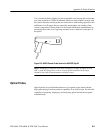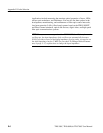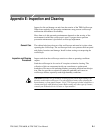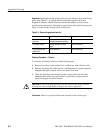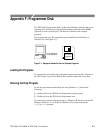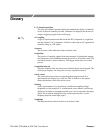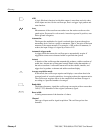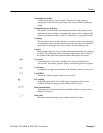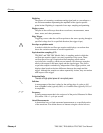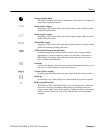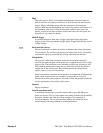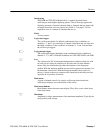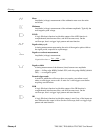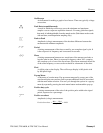
Glossary
Glossary–2
TDS 500C, TDS 600B, & TDS 700C User Manual
AND
A logic (Boolean) function in which the output is true when and only when
all the inputs are true. On the oscilloscope, that is a trigger logic pattern and
state function.
Area
Measurement of the waveform area taken over the entire waveform or the
gated region. Expressed in volt-seconds. Area above ground is positive; area
below ground is negative.
Attenuation
The degree the amplitude of a signal is reduced when it passes through an
attenuating device such as a probe or attenuator. That is, the ratio of the input
measure to the output measure. For example, a 10X probe will attenuate, or
reduce, the input voltage of a signal by a factor of 10.
Automatic trigger mode
A trigger mode that causes the oscilloscope to automatically acquire if
triggerable events are not detected within a specified time period.
Autoset
A function of the oscilloscope that automatically produces a stable waveform of
usable size. Autoset sets up front-panel controls based on the characteristics of
the active waveform. A successful autoset will set the volts/div, time/div, and
trigger level to produce a coherent and stable waveform display.
Average acquisition mode
In this mode, the oscilloscope acquires and displays a waveform that is the
averaged result of several acquisitions. Averaging reduces the apparent noise.
The oscilloscope acquires data as in the sample mode and then averages it
according to a specified number of averages.
Bandwidth
The highest frequency signal the oscilloscope can acquire with no more than
3 dB (× .707) attenuation of the original (reference) signal.
Burst width
A timing measurement of the duration of a burst.
Channel
One type of input used for signal acquisition. The oscilloscope has four
channels.



